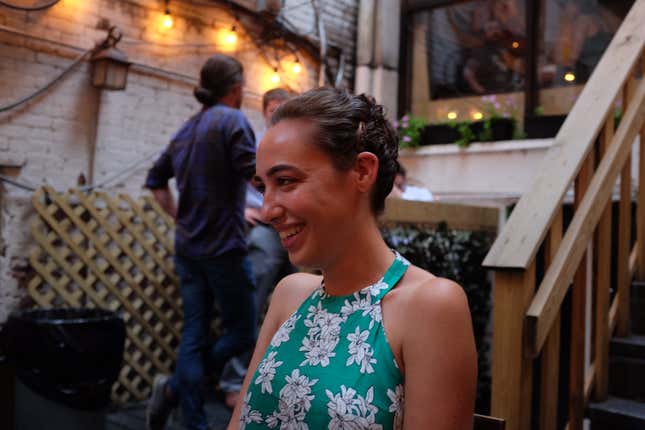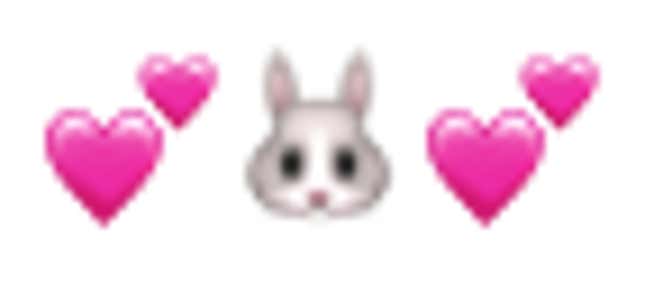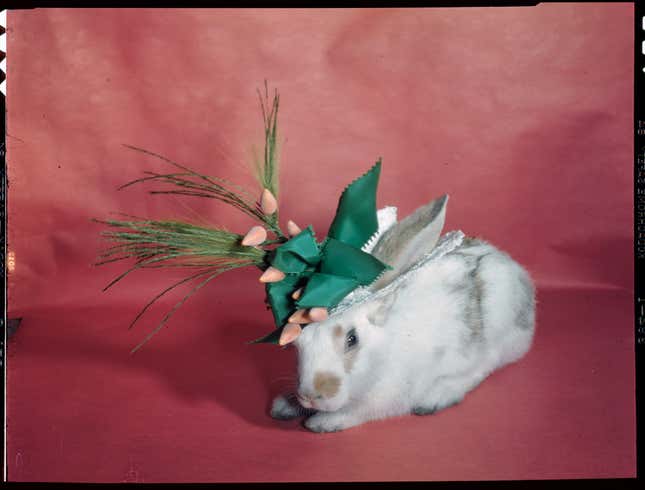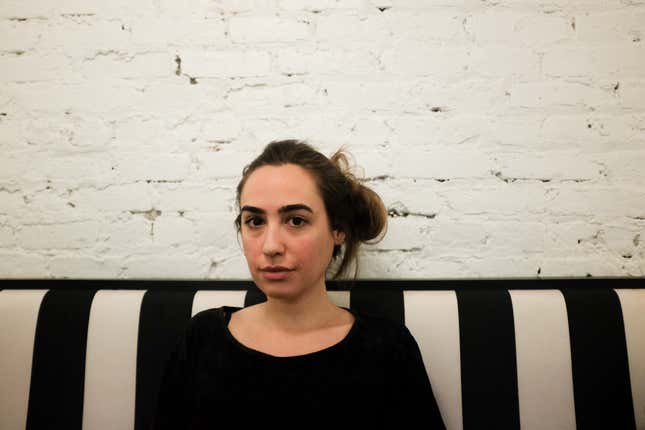
Happy Friday! That’s what I’m trying for, anyway.
I know I said I’d be writing less frequently, but this letter was designed to be flexible in extenuating circumstances and today, we’ve got them.
Lauren Brown, a founding editor of Quartz and a dear friend, died this week at age 37. These are the toughest words I’ve ever typed to you, and I hope it never gets worse.

Lauren interviewed me for my job at Quartz in 2014 and would have been my boss, but she had been diagnosed with breast cancer just a few months earlier, and worried about my having a manager who might be in and out for treatment.
Instead, we became close friends and she remained an advocate for my work, especially this newsletter, which in its early days was undoubtedly a Lauren Brown Production. Without her, we wouldn’t have even reached the starting line.
This is an infinitesimal drop in the sea of Lauren’s legacy, but it’s emblematic of many I heard from colleagues this week: She encouraged and empowered us to speak and write frankly, and showed us that our voices were worth hearing.
As an editor, and later director of special projects, Lauren spent most of her time at Quartz facilitating the work of others. But in 2015, she wrote a series about what she was learning as she lived with and fought cancer. Those pieces are helping me now to cope with her loss; they’re also just good lessons for living.

In one, about Tinder-dating after her diagnosis, Lauren called for more vulnerability and silliness, more goodness and generosity—and, citing Alana Massey—less chill. To drive the point home, she quoted the perfect line that Philip Seymour Hoffman says as Lester Bangs in Almost Famous: “The only true currency in this bankrupt world is what you share with someone else when you’re uncool.”
Lauren wrote: “I’m pretty sure my default state has only ever been uncool.”
This might surprise the outside observer, because Lauren was brilliant and beautiful, with unshakeable confidence. But let me assure you that she could get down with the nerdiest of nerds. She was game for both radical candor and utter goofiness. She really, really loved bunnies and had a penchant for loud prints. She laid her cards on the table. Uncool.

When I was tasked with writing about a theory that staring into someone’s eyes for 10 minutes can have hallucinogenic effects, I waited for Lauren to arrive at the office, and asked if we could step into the supply closet for a stare-down. “I thought you’d never ask!” she laughed. It did indeed get weird in there, and Lauren and I emerged tear-streaked and giggling.
That same year, she also sat with me on a curb on 18th Street while I sobbed—a good, swollen, snotty ugly-cry—mid-breakup. Later, when I told Lauren that a new guy I was dating exhibited some pretty uncool enthusiasm, she said he was just trying to do right by me, which I deserved—even if I wasn’t ready for it, which was okay too. Three years later, she came to our wedding.
This is the kind of friend I hope to be: one who will hallucinate in a closet with you, sit with you through a public breakdown, and tell you what you deserve in love. With Lauren, you were safe.

Lauren was not only attuned to knowing what she needed, she was a master of communicating it. This was a gift, especially as her health declined, and we all wanted to do anything—anything—to support her, and just didn’t know how. She reluctantly let me bring her dinner the last time I was in New York, and I have never been more grateful for a list of dietary restrictions.
In 2016, amidst the trigger-minefield of Breast Cancer Awareness month, Lauren helpfully listed things well-meaning people should avoid saying to someone with cancer. More important, she made a list of things you should say:
- I love you.
- I’m here for you.
- Let me know if you want to talk.
- Would you like to go see a movie?
- Can I come to the doctor with you?
- I’m thinking about you.
- How was your day?
- Do you need a ride?
- I’d like to tell you about my day.
- How are you feeling?
- We’ll get through this.
This list has brought me comfort and guidance this week, and I consider it applicable to anyone who might be suffering, which is pretty much everyone, sometime. Hang onto it in case you or a loved one need some comfort, too.
The Quartz newsroom has also been talking about how to support families coping with loss. A few things that came up: a handwritten note goes a long way, as do stories they might never have known about their loved one. Food never hurts. And remember that a few weeks or months after might be the quietest time, so stick around—or come back.
Several months after the Tinder-dating and closet-hallucinating, Lauren wrote about taking care of herself, and honoring what made her “uncool.”
“It’s all too easy, especially for women, to be swayed by social pressures and the hold of the collective ‘shoulds,’” she wrote. “Most Friday nights I go to the gym or see a movie by myself instead of going on dates or out for happy hours. I have learned to take stock of my choices, big and small, to make sure I’m doing exactly what I want. Feeling comfortable and confident about that, even when your choice is uncool or unpopular, goes a long way in daily contentment.”
In that piece—a concise manifesto that I implore you to read in full—Lauren also wrote about finding happiness in her 30s, and her realization that it was not an ending but a practice, “not a feeling, but an orientation.”
“It is an active approach to life, in a million small ways, that insists on persevering through shitty circumstances,” she wrote. “Sure, this approach means that much of the time, you’re faking happiness before you feel it. But that’s when it’s most important.”
Because of her more-or-less explicit instructions on this, I picked my ass up today, put on some Beyoncé, and went for a run.
Love,
[quartzy-signature]

Mining through many messages from Lauren, I found this gem from 2015, which I don’t think was ever published. It’s a strong, beautiful kick in the butt to get out, get vulnerable, and try something scary:
“In June, I learned how to whitewater kayak in the Blue Smoky Mountains of North Carolina. Kayaking, I found, is more about finesse than strength, the tilt of your hips and ability to read the river. With 10 other young people who have also had cancer, some of them two and three times over, I took comfort in the woods. We slept in bunk beds, ate KIND bars, and trekked around in smelly river gear. At night we sat around a campfire and told horror stories that were our own. I survived a class 3 rapid; I made it to the other side of stage 3 cancer. I swallowed fear again and again, so often it had its own flavor. But can I live? In just seven days these strangers introduced me to my heart. I found out the river leaves scars but joy is boundless and has the power to heal. I know now my best self, even if she doesn’t always show up.”